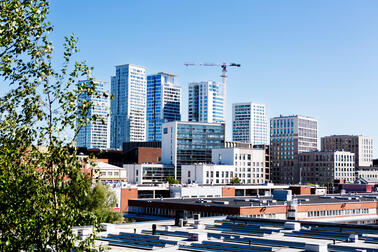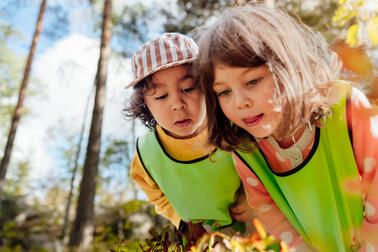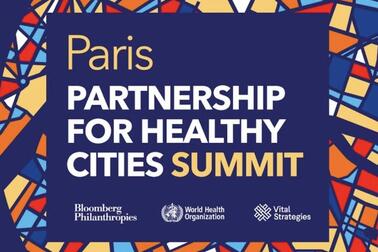
Key actions related to the promotion of sustainable development objectives in cities include land use and construction, the promotion of well-being and health, education and activities related to vitality and employment. Helsinki’s success rate in the implementation of the Sustainable Development Goals varies: some goals have already been achieved, while others, particularly those related to ecological sustainability, require more intense efforts.
Successes in many areas – major focus on the everyday lives of children and young people
There have been successes in the implementation of sustainable development in many areas.
Many of the aforementioned successes have to do with children and young people: The Finnish Model for Leisure Activities has become a permanent fixture for pupils in grades 3–9. In upper secondary education, efforts have been made to prevent segregation and improve young people’s mental health through systematic action to promote youth physical activity. Through its targeted work to promote children’s rights, Helsinki has also become the first Nordic capital to be recognised by UNICEF as a Child Friendly Municipality.
In the area of ecological sustainability, successes include a 17% reduction in carbon dioxide emissions in Helsinki in 2021–2023 and the establishment of 17 new nature reserves.
Successes in the area of social sustainability include Helsinki’s long-term work on equality and non-discrimination, anti-racist work and training, especially in the Education Division and Youth Services.
Helsinki’s sustainability efforts have also been recognised internationally: Helsinki ranked number one in the 2024 international Global Destination Sustainability (GDS) index, which measures the sustainability of travel and event destinations.
“The strategy period is coming to an end, and the past four years have included some major changes that have also had an impact on Helsinki. Despite these challenges, we have succeeded in promoting sustainability in many areas. Our ambitious climate goals have progressed as planned. The last coal power plant in Helsinki has closed, and we have increased investments in low-carbon transport infrastructure. Helsinki has also taken significant steps to increase biodiversity.
During the COVID-19 pandemic, the mental well-being of young people did not develop in the desired direction. However, Helsinki has implemented a range of measures to address the problems resulting from this. The prevention of severe segregation of the city’s neighbourhoods and population groups has also been a key objective during the strategy period. We have also focused on improving the services and pleasantness of Helsinki’s suburban regeneration areas,” summarises Mayor Juhana Vartiainen.
Recommendations and areas in need of development – the City continues to work towards carbon neutrality
However, in addition to successes, there are also plenty of areas in need of further development.
Children and young people’s mental well-being challenges and loneliness have increased. Safety and preparedness have become more prominent in the review, with particular concerns about children and young people’s experiences of safety, radicalisation and violence in close relationships. Indicators show that the number of young people committing crimes and violence against women has increased, for example.
The conflict between Helsinki’s growth and the objectives of protecting green spaces and the environment has become increasingly apparent, for example, in the case of certain urban infill and new development sites.
The current climate measures will not be enough to fully achieve Helsinki’s carbon neutrality objective, but it seems that the minimum level of an 80% reduction in direct emissions in the area will be achieved by 2030. Climate change adaptation and risk preparedness also require more effective action, in particular in the areas of stormwater flooding and heatwave preparedness.
The majority of Helsinki residents feel that their quality of life and health is good, but this figure has declined over the strategy period. There is significant variation in morbidity and the prevalence of public diseases between different areas of Helsinki.
As regards recommendations, the new Voluntary Local Review suggests that Helsinki should, among other things, increase its long-term sustainability goals and monitoring that extend beyond individual strategy terms and continue to identify and more effectively implement the most strategically effective actions as part of key processes, such as economic, investment, land-use and construction planning.
The City should also focus more on addressing its conflicting goals by identifying different impacts, coordinating goals and seeking compromises in a transparent way, for example, in relation to the growth of the city and the reconciliation of nature values.
Fostering children’s and young people’s faith in the future is essential to achieving a sustainable future. This requires psychological safety, hopefulness, resilience and inclusion among children and young people. This, in turn, requires strengthening the skills of the City's personnel based on research.
In 2015, the UN member countries agreed upon a set of goals and an agenda for sustainable development. The Agenda 2030 action plan aims for sustainable development that affords equal consideration to the environment, economy and people. Helsinki’s Voluntary Local Review entitled From Agenda to Action 2025 will be submitted to the UN in July. Finland will also present its third Voluntary National Review to the UN in July 2025.
The From Agenda to Action 2025 review has been published online on the Sustainable Helsinki website at kestavyys.hel.fi. The website also features news articles related to sustainability.


